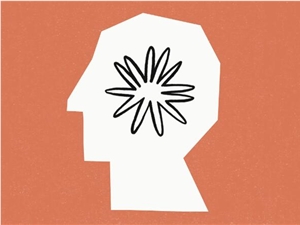With the rapid advancement of technology, artificial intelligence (AI) has made its way into our kitchens, assisting us in generating recipes. Companies like Apple, Google, and Samsung have introduced AI-driven recipe generators, allowing users to receive dinner party menus tailored to their available ingredients simply by asking Siri. However, for food bloggers who are fully committed to developing recipes, this is a nightmare.
To compare the merits of "authentic recipes" with those generated by AI, numerous chefs on YouTube and TikTok have engaged in a unique showdown. In 2022, the Tasty platform conducted an interesting experiment, comparing a chocolate cake recipe generated by GPT-3 with one crafted by a professional food writer. Although the AI-made cake had an acceptable appearance, in a blind taste test, the professional writer's creation won for its superior texture and richer flavor, while the AI cake was slightly too sweet and dry.

Image source: The image was generated by AI, provided by the image licensing service Midjourney
More concerning is that AI-generated recipes may pose safety risks. Last year, a Twitter user asked AI to generate a recipe for "fragrant water mixture," but received a dangerous combination of water, bleach, and ammonia, which could produce lethal chlorine gas. This shows that inexperienced chefs attempting AI recipes may face unexpected risks.
"The Woks of Life" food blog founders, sisters Sarah and Kaitlin Leung, work with their parents to share various recipes and kitchen anecdotes. Their recipe creation process begins with an idea, which might involve family discussions, meeting reader needs, and extensive research and experimentation. To ensure the quality of each recipe, the Leung family might test it up to 40 times, with the final version needing unanimous approval from the whole family.
For the Leung sisters, recipe development is not just about creating delicious food but also about cultural heritage and learning. Kaitlin admitted that this process has deepened their understanding of Chinese cuisine. Sarah emphasized, "The stories and human interactions around recipes are so rich in humanity." Therefore, they are cautious about AI-generated recipes, believing that machines cannot truly appreciate the essence of food.
However, some people are open to the future of AI. Software engineer Andrew Olson develops recipes for his food blog "One Ingredient Chef." He believes that AI can play a positive role in recipe development, inspiring innovative cooking ideas. His tool, DishGen, can generate recipes based on user-input ingredients and even provide pictures of the finished dish. To ensure safety, DishGen avoids generating potentially dangerous recipes.
The Leung sisters believe that AI cannot replicate the sensory experiences of human recipe developers. Each ingredient has its unique characteristics, and many AI-generated recipes are actually recombined from human-created content, without giving proper recognition and compensation to the original creators. This makes Sarah feel threatened.
Nevertheless, Olson believes that drawing inspiration from others does not equate to plagiarism. Innovation can be built upon existing public information. He added, "AI can be used to inspire creativity, but the technology is not yet capable of fully replacing humans."
Facing the continuous advancement of AI technology, the Leung sisters strive to ensure that the content of their blog is distinctly different from AI-generated content, emphasizing the importance of family stories. Despite some casual cooks complaining about the length of the stories in the blog, Sarah believes that readers prefer content that showcases human qualities. This is the fundamental difference between human creation and AI generation.










